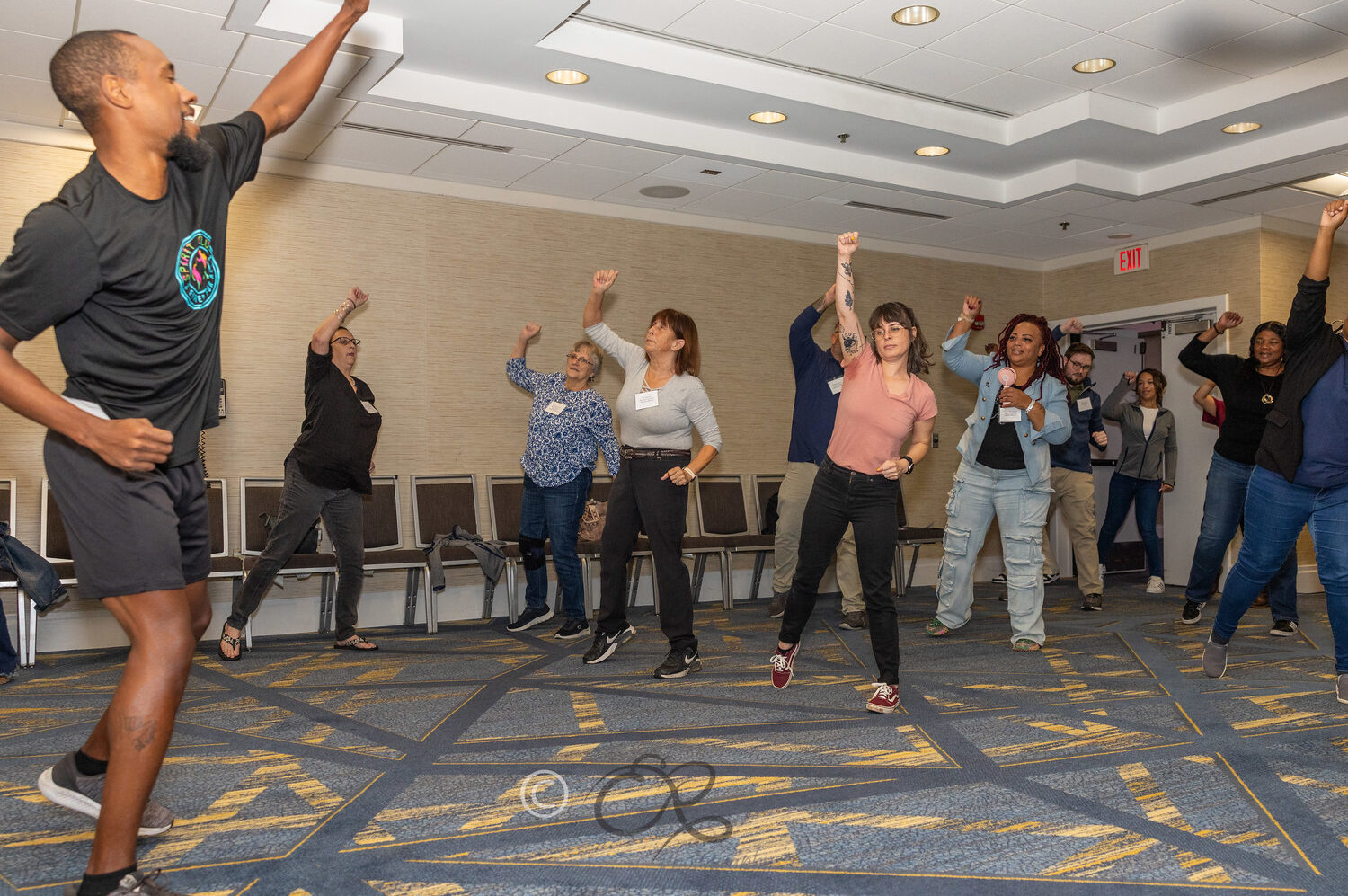
As behavioral health needs continue to rise across the country, the people who respond to those needs carry a tremendous responsibility. Crisis clinicians, PRP counselors, peer specialists, outpatient therapists, and mobile crisis teams are on the front lines every day, often supporting individuals at their most vulnerable moments. Our Santé leadership, thankfully, recognizes that the quality of care offered to communities is deeply connected to the quality of the environment provided for staff.
Throughout 2024 and into 2025, the organization has taken meaningful steps to strengthen internal culture, enhance wellness practices, and ensure that employees feel valued and supported in their work.
Chief of Staff Vernessa Scurry captured the urgency behind this effort when she shared, “As times are getting more and more unpredictable, it’s more important now than ever to take care of ourselves the best that we can, but also take care of others.” She emphasized how easy it is to overlook signs that someone, whether a colleague, neighbor, or loved one, is struggling. “This is a time where community is more important now than ever… We need supportive environments where people know it’s okay to say they’re struggling. It has to be safe, acceptable, and destigmatized to ask for help.”
That philosophy has guided Santé’s wellness initiatives, staff programming, and organizational priorities over the past year.
A Workplace That Models the Care It Gives
Behavioral health professionals regularly help people navigate crisis, fear, uncertainty, and emotional fatigue. Leadership at Santé understands that those demands require sustainable support, not occasional gestures. Staff wellness has been woven intentionally into the organization’s operations from training and supervision, to wellness events, to peer support resources.
Chief of Programs Sam Richberg has repeatedly spoken to the connection between staff well-being and client outcomes. He notes that when staff feel grounded and supported, they are more capable of offering steady, compassionate care. His message has remained consistent across departments: healthy teams create healthy outcomes.
This belief has influenced how programs are designed, how teams collaborate, and how leadership responds to staff needs. Whether clinicians are meeting clients in the community, PRP counselors are helping individuals rebuild routines in real-world settings, or mobile crisis teams are responding to emotionally demanding calls, the organization’s internal culture plays a direct role in sustaining that work.
Wellness as a Foundational Practice
CEO Michelle Grigsby-Hackett has continued to emphasize the importance of personal grounding and self-care in this field. She encourages staff to protect moments of joy, connection, and rest as these are small but powerful practices that keep people centered.
She often reminds teams, “Find something that brings you joy…your favorite movie, a book, music, anything that fills you back up. And anytime you can connect with friends or family, even if it’s just a phone call, it matters.”
Those reminders aren’t symbolic. They inform the structure of internal programming. Annual gatherings such as All-Staff Day include options like calm rooms, movement classes, and opportunities to decompress. Leadership has also prioritized clinical supervision, debriefing structures, and access to peer support networks to prevent burnout and reinforce a sense of community.
Santé’s message to staff is clear: their well-being is a professional priority, not a personal afterthought.
Creating Space for Honesty and Connection
One of the strongest shifts within the organization has been a cultural commitment to transparency and support. Vernessa’s call for environments where it’s safe to be honest reflects a broader organizational value: no one should feel alone in their work or their challenges.
Her reminder resonates across teams, “More of us are needing help in more ways than ever before. We have to make it acceptable to say what we need so we can help each other get through these hard times.”
This perspective has shaped staff trainings, leadership communication, and how teams check in with one another. Supervisors are encouraged to create open dialogue, and staff are supported in recognizing their own emotional needs. By normalizing vulnerability, the organization fosters trust within teams and across departments.
Looking Ahead
As Santé continues to expand behavioral health services across Maryland and North Carolina, the organization remains committed to strengthening the support it provides internally. Leadership views staff wellness not as an initiative, but as an ongoing responsibility and a cornerstone of ethical, high-quality care.
Across programs, one belief ties everything together: the people doing the work deserve the same compassion and understanding they extend to the community.
Supporting staff is not just a matter of workplace culture. It is an investment in the safety, stability, and resilience of the individuals and families Santé serves.
A healthy workforce strengthens community wellness.
Santé remains devoted to both.
